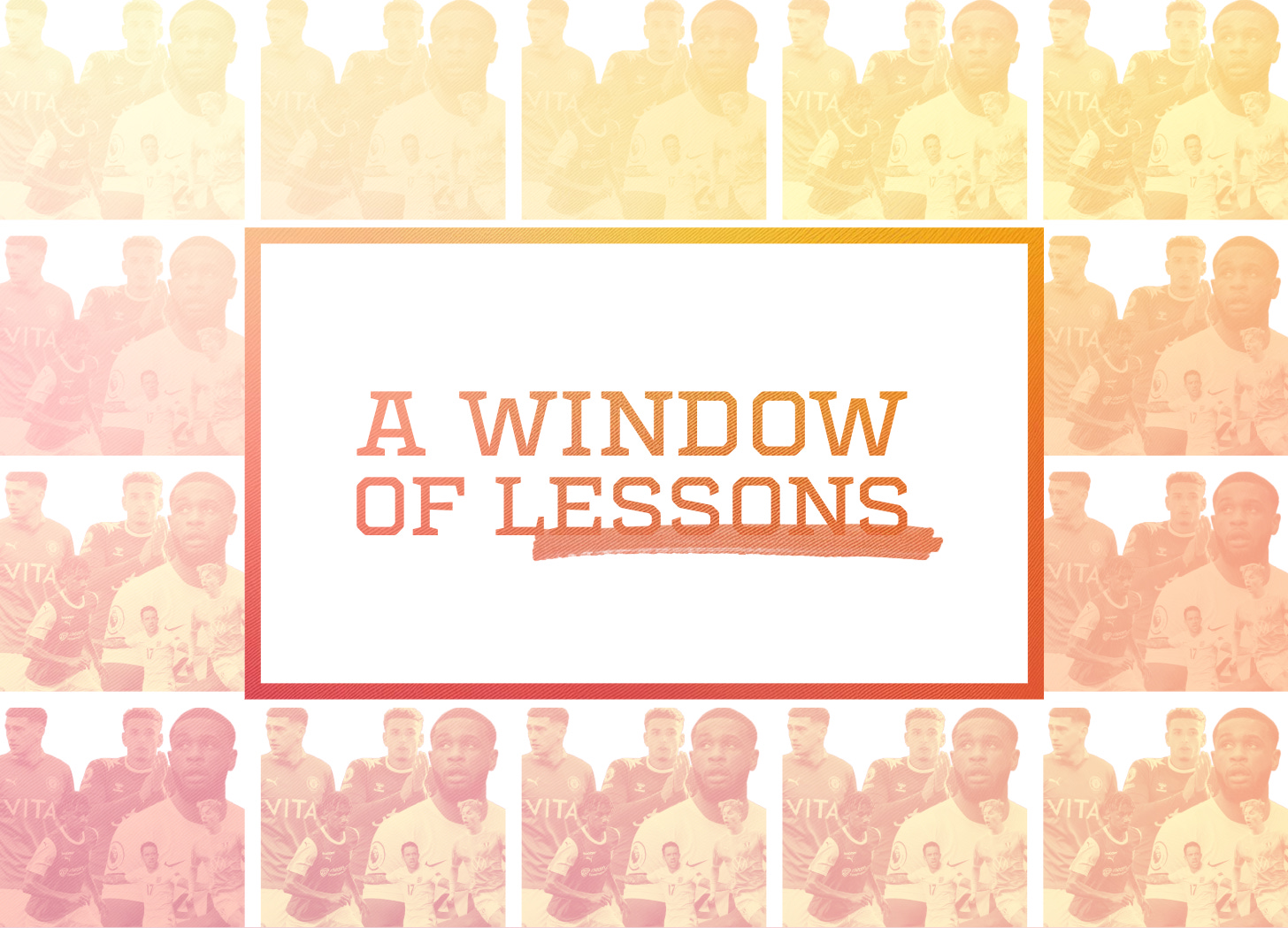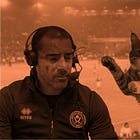A window of lessons for Sheffield United and COH Sports
Amid shifting strategies and risks, a chaotic first summer transfer window reflects a series of lessons learned a little too late
Billy Surr
With the transfer window closing on Monday, it’s probably a good moment to assess Sheffield United’s first summer under the new ownership group at COH Sports. Concerns over speed and strategy have dominated discussion, and we’ll come to both shortly, but first, it’s worth looking at what the Blades have actually lost and gained.
Going, going, gone
On the ‘lost’ side of the balance sheet, the outgoings have been mostly in line with expectations. Anel Ahmedhodžić and Vinícius Souza both left, but that was largely assumed anyway – big losses, but unsurprising. Kieffer Moore also falls into this category: with the arrival of Tom Cannon, he became a third-choice striker in a one-striker system. Add to that the open chequebook approach of Wrexham, and the club did well to make a profit on an ageing player who was unlikely to have had a huge impact, at least in terms of minutes, this season. For all his strengths, he was also facing an uphill battle with the fanbase, sentimentally speaking, after the playoff final.
So, on the face of it, three ‘major’ losses (two and a half if you’re one of the aforementioned aggrieved fans), but none that derailed summer planning. Six returning loans and Rhian Brewster’s departure to Derby meant there were definite holes to fill, but crucially, none that came out of the blue.
In terms of outgoings, then, the club shifted substantial weight off the wage bill, maximised profits where possible, and returned loan players they had to return anyway. So far, so normal. Turning to the incoming list, though, a different picture emerges.
Incomings at sixes and sevens
Strategically speaking, the approach has been scattershot at best. Starting in January of last season, we saw two ‘AI’ signings, Jefferson Cáceres and Christian Nwachukwu, who Chris Wilder notably welcomed as ‘development’ players before placing them in the academy. This summer, that approach was bolstered by Ehije Ukaki and Mihail Polendakov, both arriving from Bulgaria’s top flight.
We are yet to see what Nwachukwu has to offer, as he has been injured since his arrival and only very recently made an academy appearance. Cáceres was quickly moved on to Scottish Championship side Dunfermline Athletic, ahead of the arrival of what was widely reported to be his ESC slot replacement, Nils Zätterström. Ukaki, so far, has looked the most likely to impact the first team, but even his involvement has been minimal.
In theory, signing young talent and developing it towards profit is sound business strategy. It has worked for years in the academy; Sydie Peck, Will Lankshear, Siem Eyob-Abraha, Sam Curtis and Owen Hampson all arrived young and with good pedigrees. The issue has clearly come – in the short term at least – in translating this approach to the first team in an incredibly competitive league.
Cáceres has already been moved on, which is common in football, but after a significant outlay likely above what was received from Dunfermline. Questions must be asked about the efficacy of a transfer policy that essentially moves players between clubs connected to an advisor’s portfolio, at a loss, while said advisor works in an influential role with potential financial incentives attached. ‘Gamble signings’ are a necessity of life outside the Premier League, but too many more like this will not be good for Bettis’s heart rate come accounting season.
In fairness, Polendakov, Ukaki and Zätterström could all succeed, either on the pitch or through resale. The issue isn’t the players themselves, so much as the distraction their recruitment created. United started the summer focused on finding and developing foreign prospects, only to end it by potentially making Ben Godfrey their highest-ever earner. Strategically, that is like planting a patch of seedlings, then panicking about how slowly they grow and rushing out to buy a fifty-year-old oak tree. At least the board were not too stubborn to change tack late in the window, but such volatility hardly suggests coherent thinking.
Slow or steady?
It is likely a truism for all fanbases that they suppose their club to be unusually slow in the transfer market, always playing catch-up when compared to others. Even our most ardently positive supporters would admit, though, that this summer has been anything but quick. Even Rubén Sellés was forced to acknowledge shortcomings just two weeks into the season.
Partly due to a delayed change in management (players like Jimmy Dunne and Harry Darling were rumoured to be lined up to come under Wilder), and partly due to a transfer strategy that never settled on a coherent theme, the recruitment team seemed to react rather than lead.
Where United acted decisively, for Tyler Bindon first and then Louie Barry, the push seemed to come from Sellés himself. Barry’s arrival is telling: Aston Villa were reportedly prepared to sell him to Hull for £3.5 million, yet United only took him on loan. If that caution was meant as smart risk management, it looks inconsistent next to the later spend on Zätterström, who arrived for not much less without any experience in English football. Was that pragmatism or panic? It’s hard to say, but the lack of clarity is troubling.
Spending a lot of money late on can be explained by chain reactions across the wider market or delayed decisions, but here, it’s hard to ignore that they also suggest the possibility of a board realising too late that their initial plan wasn’t working.
Learning the hard way
So, what to make of this first window? The owners made a big call in changing the manager, rightly or wrongly, but then prevaricated on backing their man. Through naivety or hubris, it seems they overestimated the strength of the squad and what could be achieved without significant additions, while underestimating the challenges of the division. This resulted in a reversal of policy regarding free agents and loan deals, into a haphazard spending spree through which they hoped to cobble together a coherent squad. Ego seemed to guide their early approach; pragmatism arrived only once results had already forced their hand.
Yet it could have been worse. They did not dig in stubbornly, and eventually shifted strategy, albeit belatedly, towards Sellés’s call for Championship experience. Potentially bringing in Ben Mee and, fitness concerns aside, Nathan Redmond, alongside Japhet Tanganga and Danny Ings, points to a recognition that hardened nous was missing. That alone has lifted the mood around the Lane after a deflating summer.
Ultimately, the key question is whether they have achieved a coherent squad come the end of the window. Have United found the right blend of youthful gambles and established leaders, or just a mishmash born of panic? The answer will not be clear for months. But one thing is already certain: the new regime has learned, rather painfully, that in this division, timing, clarity of thought and footballing experience matter just as much as speculative punts and data-driven technical approaches. Let’s hope it’s a lesson that sticks.





Enjoyed the piece Billy.
I have just finished ‘How to Win the Premier League’. It was interesting to read the data approach built out at Liverpool and some of the parallels at the early stages. A relevant book considering the structural changes the new ownerships want to make.
Nice piece Billy. Sums it up very well and reflects my view on a mish mash of incoherence.